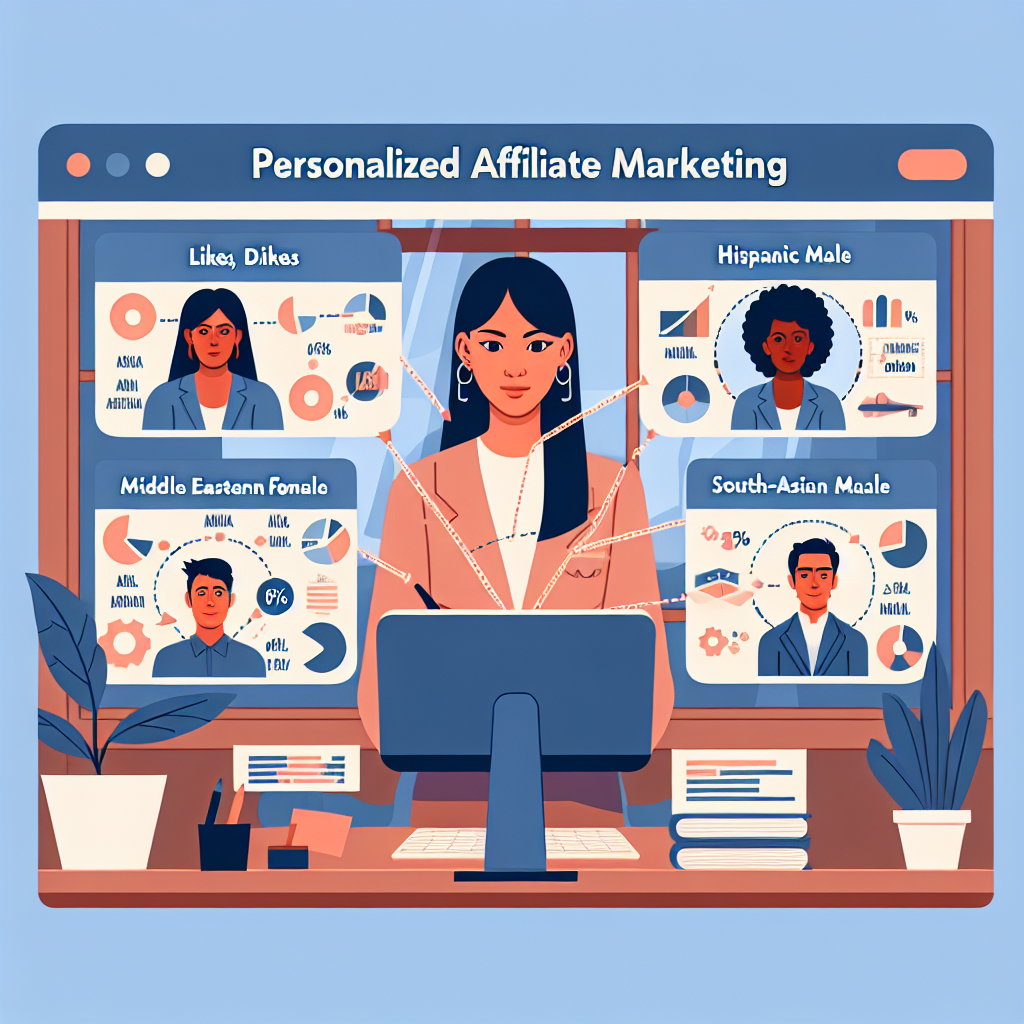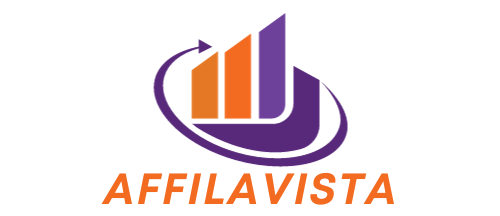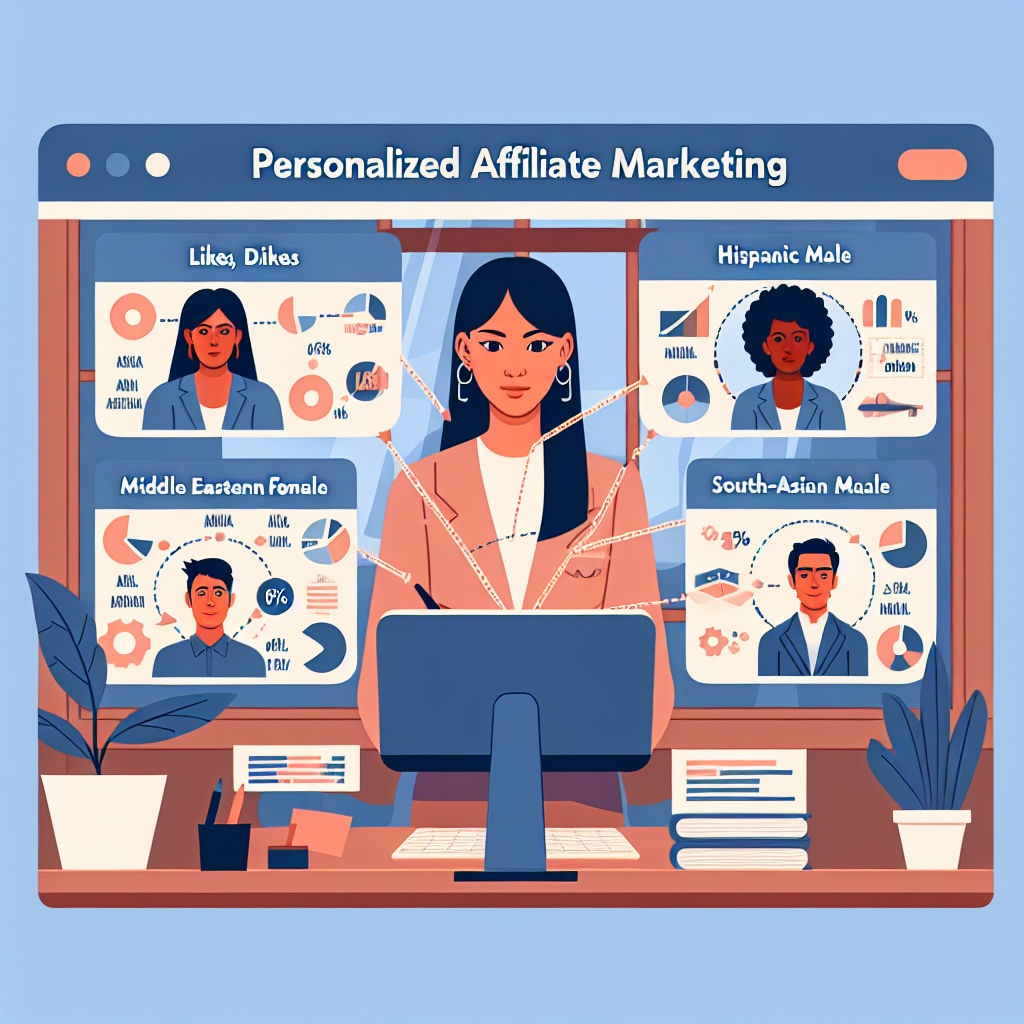Are you looking to enhance the engagement of your affiliate offers? Personalizing these offers might be the solution you’re seeking. By tailoring your affiliate offers to match the preferences and interests of your target audience, you can significantly improve engagement and increase the likelihood of conversions. In this article, we will explore effective strategies for personalizing affiliate offers and discuss the benefits this can bring to your marketing campaigns. Get ready to captivate your audience and boost your affiliate marketing success!
Understanding Affiliate Offers
What are affiliate offers?
Affiliate offers, also known as affiliate programs, are a way for individuals or businesses (affiliates) to earn a commission by promoting products or services of another company (merchant). Affiliates earn a percentage of the sales or a fixed amount for each customer they refer to the merchant through their unique affiliate link.
How do affiliate offers work?
When you join an affiliate program, you will be provided with a unique affiliate link that you can share with your audience through various marketing channels such as blogs, social media, or emails. When someone clicks on your affiliate link and makes a purchase, the merchant tracks the sale using cookies or other tracking methods. The commission is then credited to your account, and you can earn passive income from every successful referral.
Benefits of promoting affiliate offers
Promoting affiliate offers can offer various benefits. Firstly, it allows you to monetize your online presence and earn passive income without having to create your own products or provide customer support. Additionally, affiliate offers provide flexibility in terms of the products or services you choose to promote, allowing you to align them with your audience’s interests and preferences. Lastly, affiliate programs often provide marketing materials and support to help you effectively promote the offers, making it easier for you to succeed as an affiliate marketer.
Importance of Personalization
Why is personalization important in affiliate marketing?
Personalization is crucial in affiliate marketing because it allows you to create a more meaningful connection with your audience. By tailoring the affiliate offers to the specific needs and preferences of your audience, you can increase engagement, build trust, and ultimately drive more conversions. In today’s saturated digital landscape, personalization helps you stand out from the competition and show your audience that you genuinely care about their individual needs.
Advantages of personalized affiliate offers
Personalized affiliate offers offer several advantages. Firstly, personalized offers are more relevant to your audience, increasing the chances of them clicking on your affiliate links and making a purchase. Secondly, personalization allows you to showcase your expertise and understanding of your audience’s needs, further building trust and credibility. Lastly, personalized offers can result in higher conversion rates as they align with the specific interests and preferences of your audience.
Challenges of personalization
While personalization can greatly benefit your affiliate marketing efforts, it also comes with its challenges. One of the main challenges is collecting and analyzing the necessary data to personalize your offers effectively. Data collection requires careful planning, implementation, and analysis, which can be time-consuming and resource-intensive. Additionally, personalization requires continuous monitoring and adjustment to ensure its effectiveness, which can be demanding for affiliates with limited time and resources. However, with the right strategies and tools, these challenges can be overcome, leading to more successful personalized affiliate offers.
Segmenting Your Audience
Identifying target audience
To personalize your affiliate offers, you need to first identify your target audience. This involves understanding their demographics, interests, preferences, and pain points. By gaining insights into who your audience is, you can create more relevant and effective personalized offers.
Creating buyer personas
Creating buyer personas is an effective way to segment your audience. A buyer persona is a fictional representation of your ideal customer, based on real data and market research. It includes details such as age, gender, occupation, hobbies, challenges, and goals. By creating buyer personas, you can better understand your audience’s motivations and tailor your affiliate offers to meet their specific needs.
Segmentation strategies
Segmentation involves dividing your target audience into smaller, more specific groups based on common characteristics. This allows you to create personalized offers that cater to each segment’s unique preferences. Some segmentation strategies include demographics (age, gender, location), psychographics (interests, values, lifestyle), and behavior (prior purchases, browsing history). By segmenting your audience, you can deliver personalized offers that resonate with each group, increasing the likelihood of engagement and conversions.

Collecting Relevant Data
Data collection methods
Collecting relevant data is essential for personalizing your affiliate offers. There are various methods to collect data, including:
- Website analytics: Utilize tools like Google Analytics to gain insights into your audience’s behavior, preferences, and demographics.
- Social media monitoring: Monitor engagement and interactions on social media platforms to understand your audience’s interests, discussions, and feedback.
- Customer surveys: Conduct surveys to gather direct feedback and insights from your audience about their preferences and needs.
- Purchase history: Analyze your audience’s past purchases to understand their buying patterns and tailor offers accordingly.
- Third-party data: Utilize external data sources to gain additional insights into your audience, such as market research reports or industry studies.
Utilizing customer surveys
Customer surveys are a valuable tool for collecting direct feedback and insights from your audience. By asking targeted questions related to their preferences, interests, and pain points, you can gain valuable insights that can inform your personalized affiliate offers. Consider using online survey platforms or email surveys to reach your audience and encourage their participation.
Leveraging website analytics
Website analytics provide a wealth of information about your audience’s behavior and preferences. By utilizing tools like Google Analytics, you can track metrics such as page views, bounce rates, and time spent on site. This data can help you understand which pages or offers resonate the most with your audience, allowing you to optimize and personalize your affiliate offers accordingly.
Utilizing Personalization Tools
Benefits of personalization tools
Personalization tools can greatly enhance your ability to personalize affiliate offers. These tools automate the process of collecting, analyzing, and implementing personalized strategies, saving you time and resources. Benefits of using personalization tools include:
- Improved efficiency: Personalization tools streamline the data collection and analysis process, allowing you to focus on creating personalized offers rather than spending time manually sifting through data.
- Enhanced targeting: These tools use advanced algorithms to segment your audience and deliver personalized content based on their preferences and behavior.
- Increased conversion rates: By delivering more relevant offers to your audience, personalization tools can significantly improve your conversion rates, leading to higher revenue and commission.
Popular personalization tools
There are various personalization tools available, each with its unique features and functionalities. Some popular personalization tools include:
- HubSpot: HubSpot offers a suite of marketing tools, including a personalization tool that allows you to deliver tailored offers based on visitors’ behavior and preferences.
- Marketo: Marketo provides automation and personalization capabilities, enabling you to create personalized experiences across multiple channels.
- Optimizely: Optimizely offers A/B testing and personalization features, allowing you to test different variations of your affiliate offers and optimize them based on real-time data.
- Evergage: Evergage offers real-time personalization solutions, enabling you to deliver personalized offers based on individual customer behavior and preferences.
Choosing the right tool for your needs
When selecting a personalization tool, consider your specific requirements, budget, and technical capabilities. Evaluate the features, ease of use, and integration capabilities of each tool to ensure it aligns with your affiliate marketing goals and strategies. Additionally, consider seeking recommendations, reading reviews, and exploring demos or trials to make an informed decision.
Customizing Affiliate Offers
Modifying offer content
Customizing offer content is a crucial aspect of personalizing affiliate offers. By modifying the content of your offers, you can make them more relevant and appealing to your audience. Some ways to customize offer content include:
- Tailoring product descriptions: Adjust the language, tone, and style of your product descriptions to match your audience’s interests and preferences.
- Highlighting benefits: Emphasize the specific benefits of the product or service that align with your audience’s needs or pain points.
- Incorporating personal recommendations: Share your own personal experiences or testimonials to build trust and credibility with your audience.
- Using multimedia elements: Include images, videos, or infographics that resonate with your audience and enhance their understanding of the offer.
Designing personalized landing pages
Creating personalized landing pages can significantly enhance the effectiveness of your affiliate offers. A personalized landing page is a dedicated page that is specifically tailored to a particular segment or audience. By designing landing pages that align with the specific needs and preferences of your audience, you can increase engagement and conversions. Consider using tools like Unbounce or Instapage to create customizable landing pages that incorporate personalized content and calls to action.
Creating tailored promotions
Tailored promotions involve offering exclusive discounts, bonuses, or incentives to specific segments of your audience. By identifying the unique needs and preferences of your audience segments, you can create promotions that are highly appealing and drive action. For example, if you have segmented your audience based on their level of experience, you can offer a special training or resource bundle for beginners or advanced users. Tailored promotions not only enhance personalization but also create a sense of exclusivity, boosting the perceived value of the offer.
Implementing Dynamic Content
What is dynamic content?
Dynamic content refers to website or marketing content that changes based on a visitor’s demographic, behavior, or preferences. It allows for real-time personalization, tailoring the content to match the unique characteristics of each visitor. Dynamic content can include text, images, videos, or call-to-action buttons that are dynamically generated based on data attributes.
Using dynamic content in affiliate offers
Implementing dynamic content in your affiliate offers can significantly improve personalization and increase engagement. For example, by dynamically generating product recommendations based on a visitor’s browsing or purchase history, you can showcase offers that are highly relevant to their interests. Similarly, dynamically changing the content or visuals of your landing page based on a visitor’s location or demographics can create a more personalized and engaging experience.
Examples of dynamic content implementation
There are various ways to implement dynamic content in your affiliate offers. Some examples include:
- Location-based personalization: Displaying offers or messaging specific to the visitor’s location, such as highlighting local events or promotions.
- Behavioral personalization: Showing personalized recommendations based on a visitor’s browsing or purchase history, such as displaying related products or upsell offers.
- Demographic personalization: Customizing the content to match the visitor’s demographic characteristics, such as using language or imagery that resonates with their age or gender.
By leveraging dynamic content, you can create a more personalized and engaging experience for your audience, increasing the likelihood of conversion.
Leveraging User Behavior Data
Importance of user behavior data
User behavior data provides valuable insights into how your audience interacts with your website, offers, and marketing channels. By leveraging this data, you can better understand their preferences, pain points, and motivations, allowing you to personalize your affiliate offers effectively.
Analyzing browsing and purchase history
Analyzing your audience’s browsing and purchase history can provide valuable insights into their interests and purchase behavior. By tracking the pages they visit, products they view, or categories they explore, you can identify patterns and preferences. This data can help you deliver more targeted and relevant offers, increasing the chances of conversions. Similarly, analyzing their purchase history can help you identify cross-selling or upselling opportunities, allowing you to personalize offers based on their past purchases.
Offer recommendations based on behavior
Leveraging user behavior data allows you to make personalized offer recommendations to your audience. For example, if a visitor has shown interest in a specific product category, you can recommend similar products that align with their preferences. By leveraging their behavior data, you can anticipate their needs and present them with highly relevant offers, increasing the likelihood of engagement and conversions.
Testing and Refining
Split testing personalized offers
Split testing, also known as A/B testing, allows you to test different variations of your personalized offers to determine which performs better. By splitting your audience into random groups and presenting them with different versions of your offers, you can measure their engagement, click-through rates, and conversion rates. This data can help you identify which personalization strategies or content resonate the most with your audience, allowing you to refine your approach and optimize your offers further.
Measuring engagement and conversions
Measuring engagement and conversions is essential to evaluate the effectiveness of your personalized offers. By tracking metrics such as click-through rates, conversion rates, and average order value, you can gauge how well your offers are performing. Additionally, monitoring metrics like bounce rates or time spent on page can provide insights into the effectiveness of your landing pages or overall user experience. The data collected from these metrics can help you refine your strategies and optimize your offers for better engagement and conversions.
Refining strategies based on data
Data-driven decision making is crucial for refining your personalization strategies. By analyzing the data collected from user behavior, split testing, and engagement metrics, you can identify areas for improvement and make data-driven adjustments. Continuously refine your content, targeting, or offers based on the insights gained from your data. Regularly monitor the performance of your personalized offers and iterate on your strategies to achieve better results over time.
Building Trust and Transparency
Importance of trust in affiliate marketing
Trust is the foundation of successful affiliate marketing. Without trust, your audience may be hesitant to click on your affiliate links or make a purchase through your recommendations. Building trust fosters credibility, loyalty, and long-term relationships with your audience. Personalization plays a vital role in building trust as it demonstrates that you genuinely understand and care about your audience’s needs, preferences, and challenges.
Incorporating transparency in offers
Transparency is key to building trust with your audience. When promoting affiliate offers, be transparent about your relationship with the merchant and the fact that you earn a commission from the sales generated through your links. Clearly disclose any affiliations or partnerships, ensuring your audience knows that you are providing honest and unbiased recommendations. Incorporate disclaimers and disclosures in your content to maintain transparency and build trust.
Establishing credibility with personalized offers
Personalized offers can help establish credibility by demonstrating your expertise and understanding of your audience’s needs. When you tailor your offers to match their interests, pain points, and preferences, you show that you have taken the time to research and provide solutions that are genuinely beneficial. Sharing your personal experiences or testimonials can further enhance credibility, as it allows your audience to see the real-life impact of the products or services you promote. By consistently delivering personalized offers that add value, you can build a trusted reputation and establish yourself as a credible affiliate marketer.
In conclusion, personalization plays a significant role in affiliate marketing. By understanding affiliate offers, the importance of personalization, segmenting your audience, collecting relevant data, utilizing personalization tools, customizing offers, implementing dynamic content, leveraging user behavior data, testing and refining, and building trust and transparency, you can create more engaging and successful affiliate offers. Embrace personalization in your affiliate marketing strategy and put your audience’s needs at the forefront, and you’ll pave the way for long-term success and stronger connections with your audience.

